East Midlands Ambulance Service workers join strike action
- Published
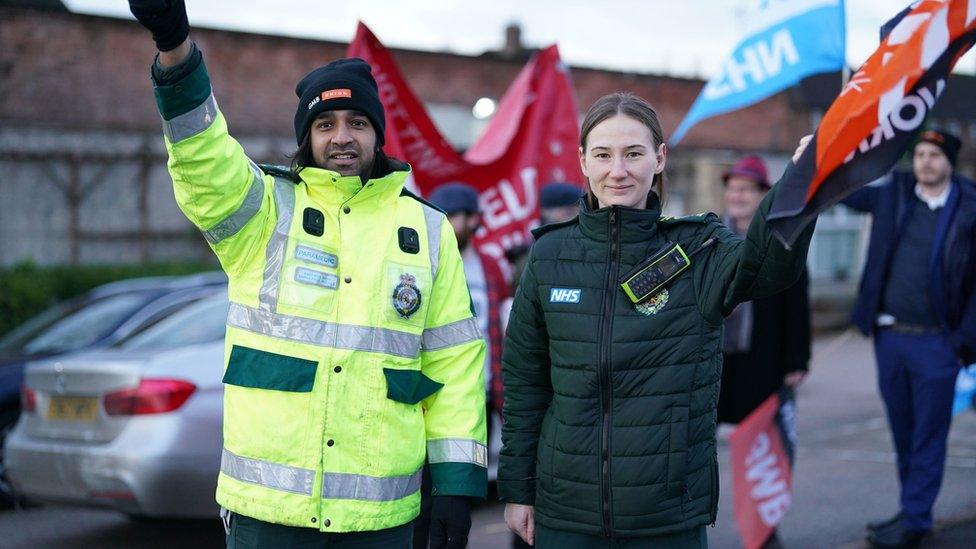
Workers formed a picket line outside the East Midlands Ambulance Service station in Nottingham
East Midlands Ambulance Service (EMAS) workers are taking part in national strike action.
The GMB union said paramedics, emergency care assistants, call handlers and other staff were staging pickets in Nottingham, Leicester, Lincoln and other parts of the region on Wednesday.
EMAS said the situation was "immensely challenging".
The government said patients would see disruption.
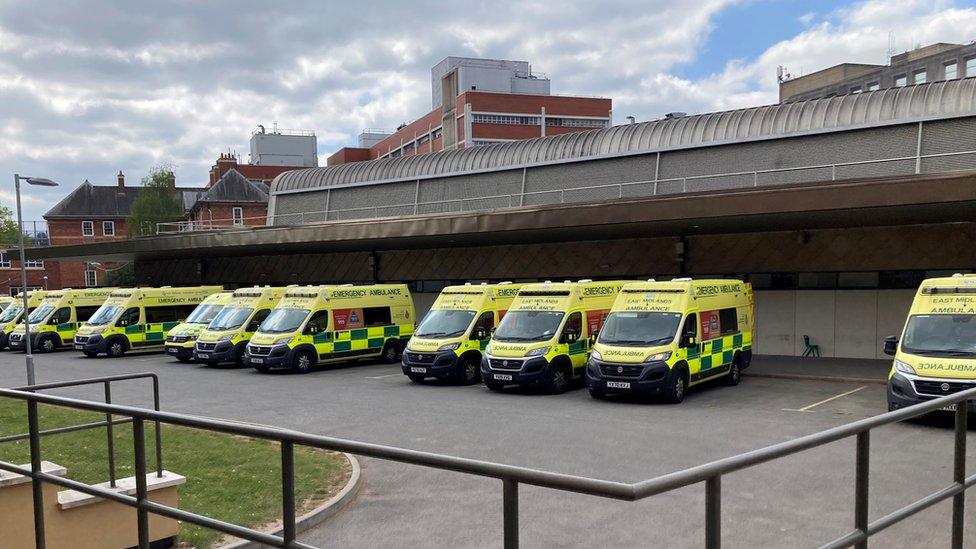
EMAS staff from the GMB union are taking action as part of a national pay dispute
Roughly half of the ambulance service walked out for 24 hours on 21 December and were due to do the same on 28 December before the strike was called off.
Rachel Harrison, GMB national secretary, said: "GMB cancelled a planned strike over the Christmas period to say thank you to the public for their incredible support.
"It also allowed time for the government to talk to us about pay, but ministers have dithered and postured, wasting valuable time.
"To end this dispute, GMB needs a concrete offer to help resolve the NHS's crushing recruitment and retention crisis.
'Things have got worse'
"The public expects the government to treat this dispute seriously - it's time they got on with it."
Workers formed a picket line outside the Beechdale Ambulance Station in Nottingham on Wednesday.
Vimal Mistry - who has been a paramedic for seven years - told the PA News agency: "After the pandemic things have just got worse. People are queuing at hospitals, [queuing for] primary care.
"People can't get appointments anymore so they put off going to the doctor's and when it gets worse they come to us.
"Staff see all this and just get run down. With interest rates and fuel costs going up, people just can't afford the things they could do before.
"I'm now having to think about how much heating I have on in the house - I have it on for two hours now."
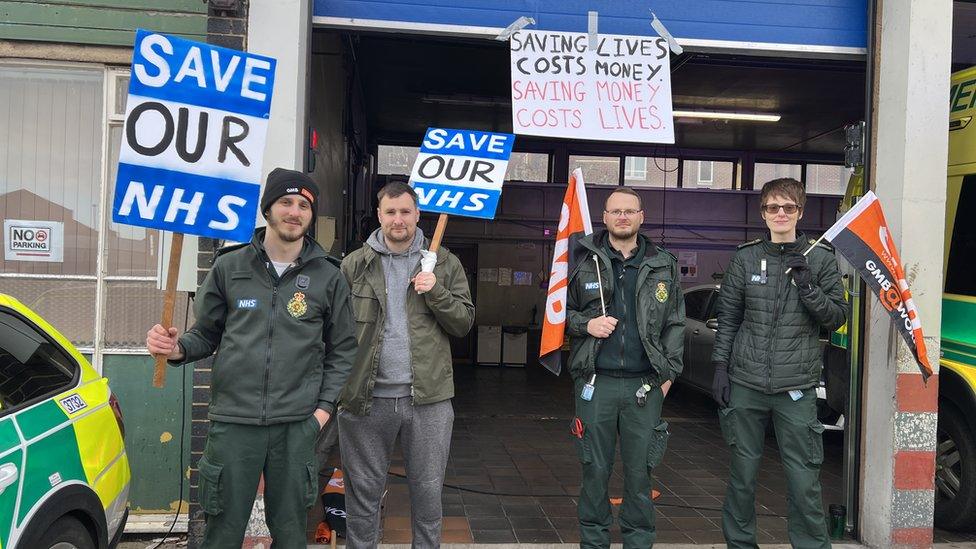
Strike action also took place in Derby
Another worker, who wished to remain anonymous, joined EMAS as a member of ambulance support crew eight months ago, having previously worked in a control room.
"It's not pleasant getting to a job that's possibly 24 hours old," she said. "It's just really disheartening - going to a patient who has possibly been on the floor for 12 hours is just so disheartening.
"It's really hard. I bought a house at the start of last year when electricity and gas didn't cost what it does now.
"I took that into my budget and I could afford it, whereas now I am having to think about when I'm putting the heating on, what food I'm buying."
Several drivers honked their horns in a show of support as they passed the station.
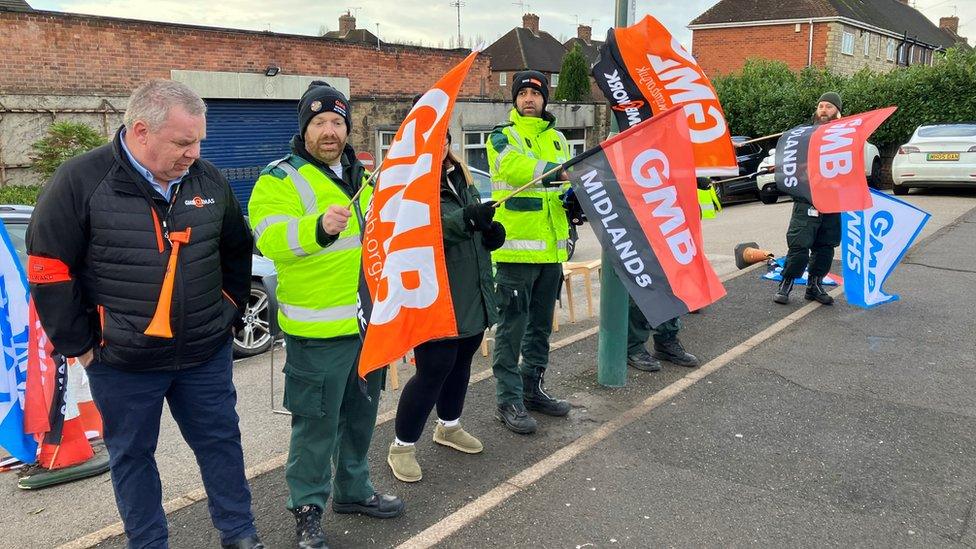
The GMB union has called on the government to "step up" and acknowledge staff workloads
EMAS is made up of more than 4,000 workers represented by the GMB, Unison and Unite unions.
Ben Holdaway, director of operations at EMAS, said: "Industrial action last took place at EMAS on 21 December, and despite a 33% reduction in emergency and urgent calls on the day, it remained immensely challenging.
"We are again working closely with trade union colleagues, and NHS and blue-light service providers across the region to do all we can to minimise the impact on patient safety."
Health Secretary Steve Barclay said: "Today's ambulance strike is an unwelcome return to unnecessary disruption and comes at a time when the NHS is already under huge pressure from Covid and flu.
"While we have contingency plans in place, including support from the military, community first responders and extra call handlers, to mitigate risks to patient safety, there will inevitably be some disruption for patients with fewer ambulances on the road."

Follow BBC East Midlands on Facebook, external, Twitter, external, or Instagram, external. Send your story ideas to eastmidsnews@bbc.co.uk.
- Published10 January 2023

- Published10 January 2023
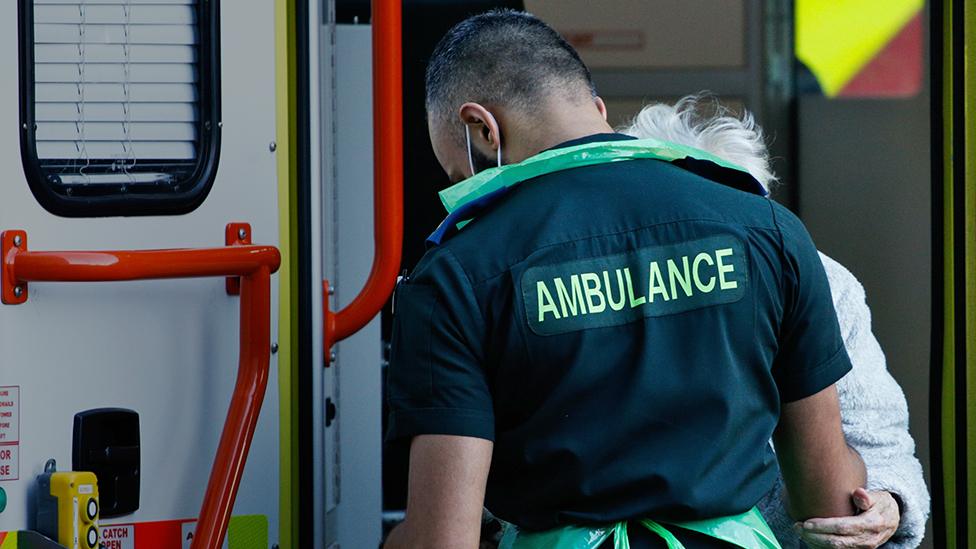
- Published24 December 2022
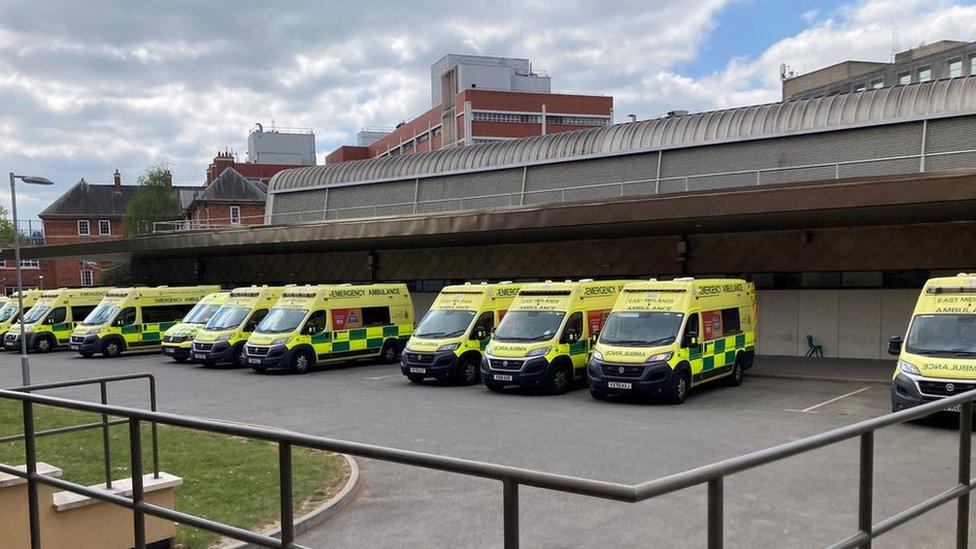
- Published21 December 2022
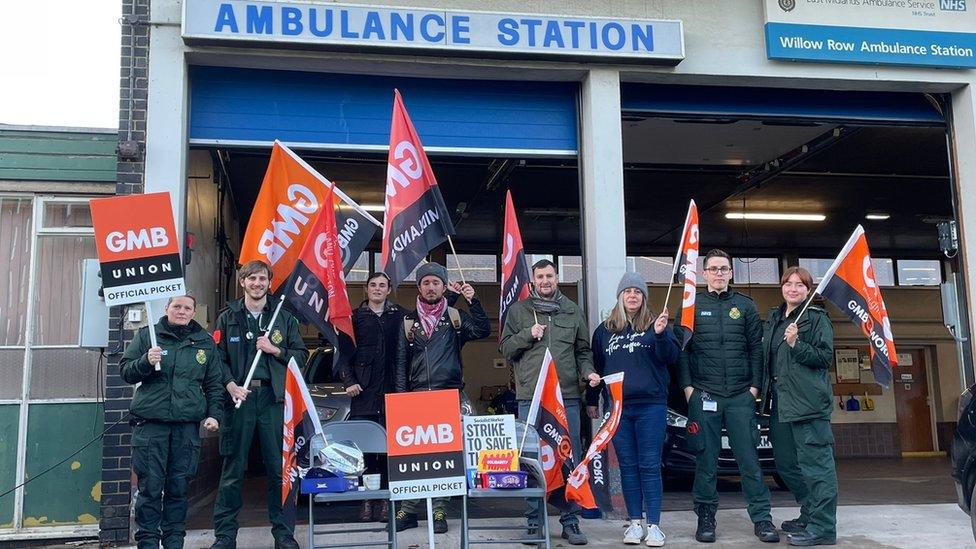
- Published6 October 2022
